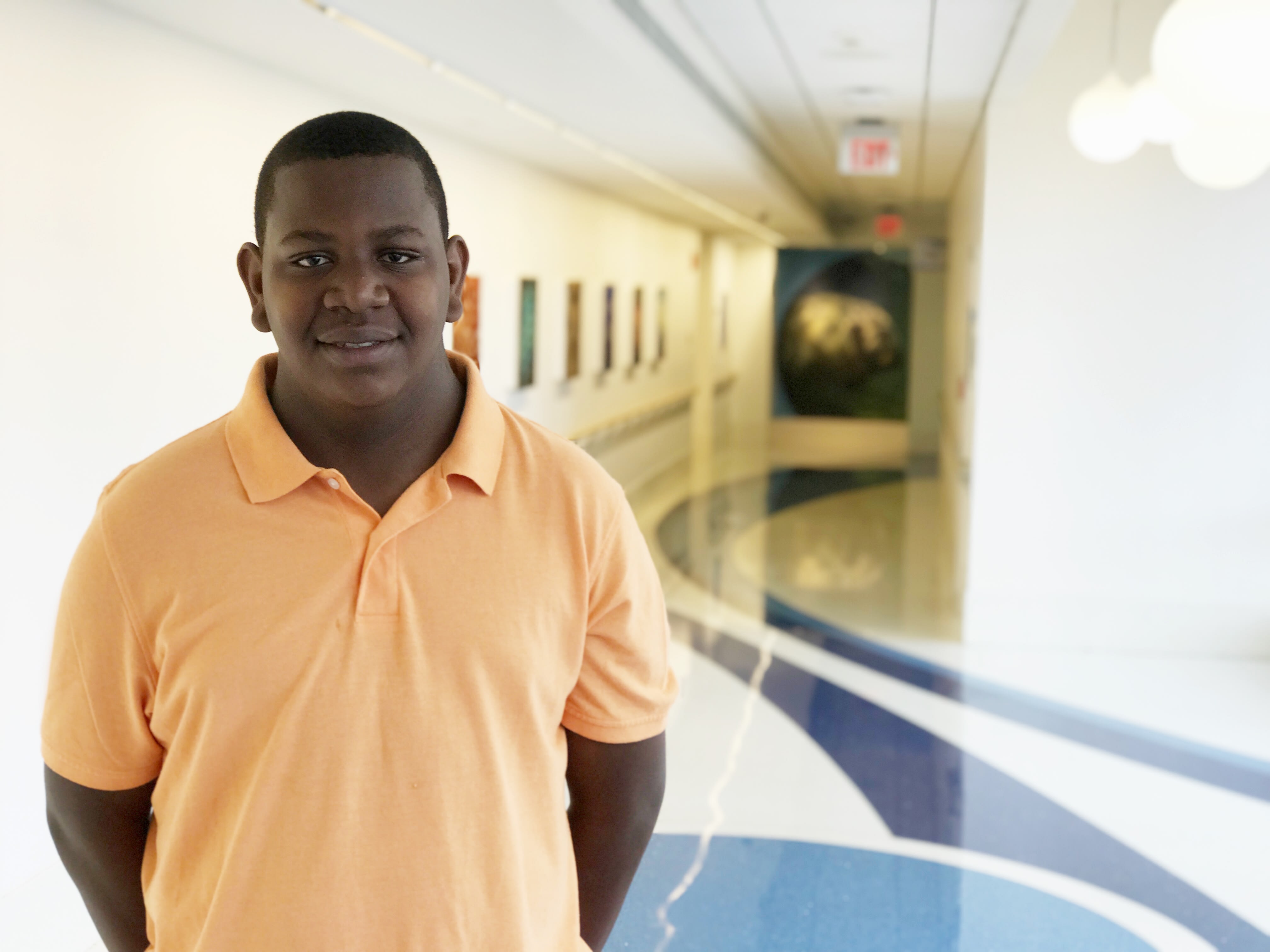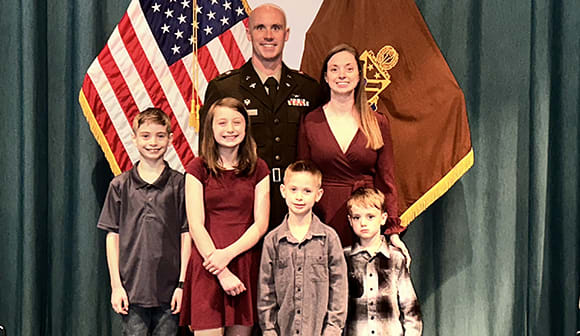A stroke at 14: when time means everything
Kids don’t typically have strokes. Here’s how quick diagnosis and intervention reversed a teenager’s paralysis.
Article Date:

At age 14, Mandarin middle-schooler Jordan Mason is not your typical seventh grader.
For one, he towers over many of his classmates at 6 feet 2 inches tall and 240 pounds. But that’s not what really sets the basketball-loving teen apart from others his age.
Earlier this year, Mason had a stroke and it paralyzed him.
But only for a few hours.
That’s because he had time on his side, thanks to a quick-acting teacher who called 911, an accurate assessment by the pediatric emergency medicine physician at the Wolfson Children’s Emergency Center, and the expertise of a Baptist Health endovascular neurosurgeon and the neurosurgery team at the Stys Neuroscience Institute at Wolfson Children’s Hospital.
It was Jan.13, 2017. Friday the 13th, to be exact.
“Jordan had been complaining of heartburn and a headache and wanted to stay home from school, but I told him to go and I’d come pick him up if he didn’t feel better,” said his mother, Donna Jackson-Chambliss.
“At 10 am I got a call that he had fallen down and was complaining that his head was killing him,” she said. “His teacher had noticed that he was not himself and was slurring his words, so they called an ambulance.”
Strokes happen for a few reasons, but Mason’s was an ischemic stroke, caused from a blood clot that had formed in his heart, broken away and traveled to his brain. It’s rare in children, but Mason was more susceptible because he was born with a heart condition.
When he arrived at the Wolfson Children’s Emergency Center, his caregiving team did not know about his heart history. Each year in the US, stroke only affects about 6 out of 100,000 children who are 15 or younger, so it might not have been a diagnosis that many emergency room physicians would consider.
“Stroke is really one of the more difficult diagnoses to make in young patients because it’s so low on the list,” said Eric Sauvageau, MD, director of the Baptist Stroke & Cerebrovascular Center, and Mason’s neurovascular surgeon. “It would have been easy for the pediatric emergency room doctor to brush it off but he was at the top of his game, and recognized that it could be a stroke.”
After reviewing Mason’s CT and MRI scans, Dr. Sauvageau confirmed that a clot was blocking the right internal carotid artery, and that a good portion of the brain matter on that side was dying from the lack of blood flow.
“They told me that they needed to take Jordan back to surgery right away,” Jackson-Chambliss recalled. “At that point he couldn’t move his left side and without treatment, they said he would be completely paralyzed within 30 minutes.”
Mason underwent a procedure called mechanical thrombectomy. Dr. Sauvageau threaded a device called a stent retriever (a catheter with a small mesh basket) through the groin and up the main artery to the brain. The clot was captured and removed, restoring blood flow.
“Because we pulled it out in time, he regained the ability to move everything,” Dr. Sauvageau said. “There’s no doubt he would have been fully paralyzed on his left side and severely disabled had he gone much longer without treatment.”
After two days in the Pediatric Intensive Care Unit, Mason went home. He’s on blood thinners until the last of the original clot in his heart dissolves, and he’s working with a physical therapist to strengthen some slight weakness in his left hand. But it’s only a matter of time before he’ll be out on the court dribbling a basketball.
While stroke in children is not as common as it is in adults, the advantage of having two Baptist Health endovascular neurosurgeons working alongside the pediatric neurosurgery team at the Stys Neuroscience Institute at Wolfson Children’s increases both survival and successful outcomes for kids like Mason.
“Having such a specialized team here that’s available for both children and adults in our region is truly significant, and we are saving lives,” said University of Florida College of Medicine – Jacksonville pediatric neurosurgeon, Philipp Aldana, MD, who is co-medical director of the Stys Neuroscience Institute and medical director of the Lucy Gooding Neurosurgery Center at Wolfson Children’s.
“Jordan has a remarkable story,” Jackson-Chambliss said. “We’re just so thankful to everyone.”



